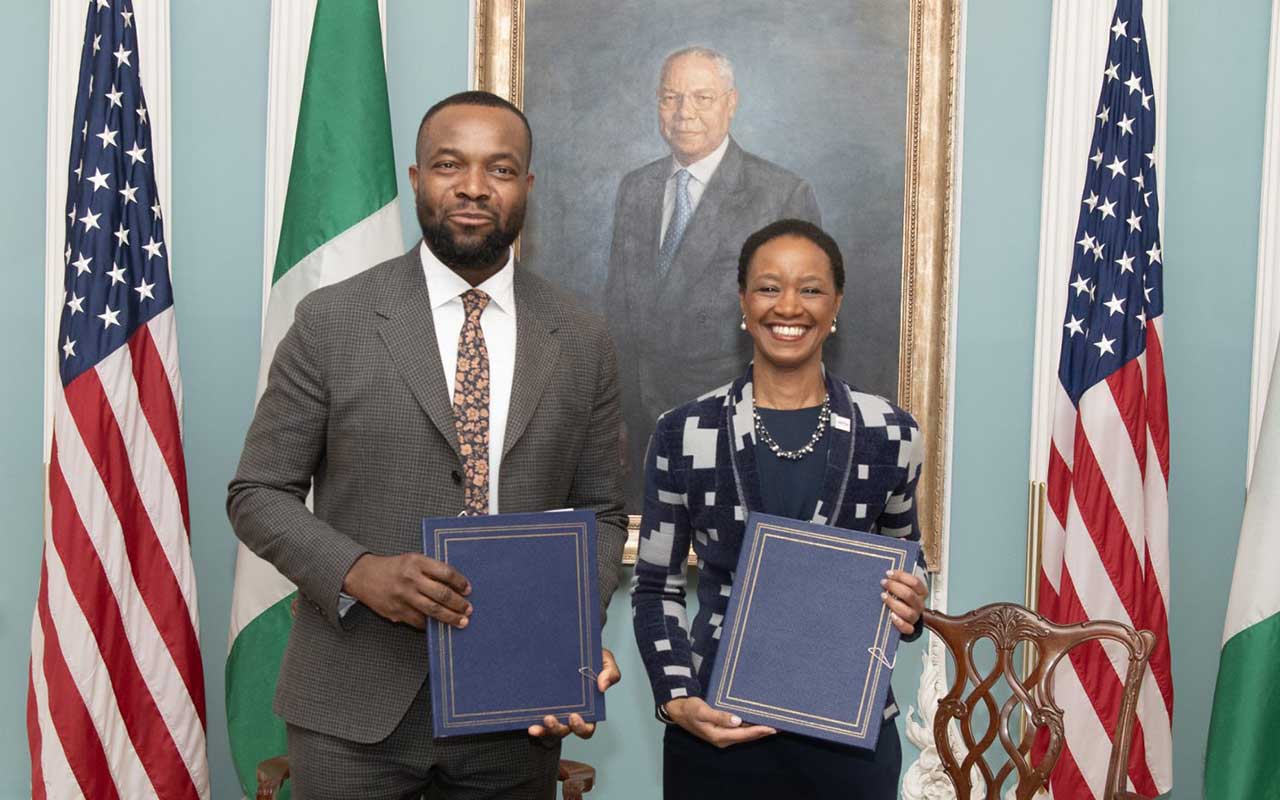The Federal Ministry of Communications, Innovation and Digital Economy (FMCIDE) in Nigeria has been awarded a grant by the U.S. Trade and Development Agency on Monday to conduct a feasibility study on the possibility of providing internet access to 12 million people by installing new fibre optic backbone infrastructure throughout the nation. HIP Consult Inc., located in Washington, D.C., was chosen by FMCIDE to carry out the study.
“As Nigeria and the United States deepen our cooperation in the technology sector, USTDA is proud to partner with FMCIDE to deliver concrete action in support of our shared digital infrastructure goals,” said Enoh T. Ebong, USTDA’s Director. “This project will help expand connectivity to Nigeria’s urban and rural communities while opening opportunities for trusted U.S. technologies to advance the country’s digital priorities.”
Read also: Nigeria launches Technology Export and Digital Trade Desk to strengthen economy
At the U.S. Department of State’s Inaugural U.S.-Nigeria Technology Dialogue, Director Ebong and FMCIDE Minister Dr Bosun Tijani signed the grant agreement.
Plans to raise Nigeria’s broadband access from 42.27% to 70%
Nigeria’s National Broadband Plan 2020–2025 would benefit from the study, especially its goals to raise the nation’s broadband penetration rate from 42.27 percent to 70 percent and guarantee that at least 90 percent of the population has access to reasonably priced, dependable broadband coverage.
At least 90,000 km of new fibre optic backbone infrastructure will be deployed along the current national power grid, train, road, and oil and gas pipeline systems.
To improve connection throughout Nigeria, including to underprivileged and difficult-to-reach communities, it will pinpoint gaps in the market for backbone infrastructure and create plans to close such gaps.
Stakeholders express enthusiasm
Dr. ‘Bosun Tijani, Honorable Minister for Communications, Innovation & Digital Economy of Nigeria, said: “I am pleased to receive this grant from USTDA to fund this feasibility study which is a critical component of our plan to deploy 90,000 kilometres of fibre optic cable across Nigeria. This is a further testament to our long-standing cooperation between Nigeria and the United States in technology infrastructure development. I look forward to further collaboration and investments from partners in the U.S. government and private sector, especially in projects like these that support the growth of Nigeria’s digital economy.”
Read also: NITDA to train 69,000 civil servants on digital literacy
“This partnership exemplifies the strong and growing relationship between Nigeria and the United States in the technology sector,” said Deputy Secretary of State Kurt Campbell, who opened the inaugural technology dialogue. “By working together on this critical infrastructure project, we are not only enhancing internet access for millions of Nigerians but also creating opportunities for U.S. businesses to contribute their expertise and innovative solutions. This collaboration underscores our commitment to fostering economic growth and digital inclusion in Nigeria.”
U.S. Ambassador to Nigeria Richard M. Mills, Jr. said: “The launch of the Fiber Forward Project marks a significant milestone in our ongoing partnership with Nigeria. By enhancing connectivity, we are not only bridging the digital divide but also creating inclusive economic opportunities for all Nigerians. This project will empower communities, foster innovation, and drive sustainable economic growth across the nation.”
The support from USTDA is in line with the Administration’s priorities, which include the Partnership for Global Infrastructure and Investment, the U.S. Strategy Towards Sub-Saharan Africa, the Prosper Africa initiative, and the Digital Transformation with Africa initiative, which aims to increase access to an open, interoperable, dependable, and secure Internet.
















